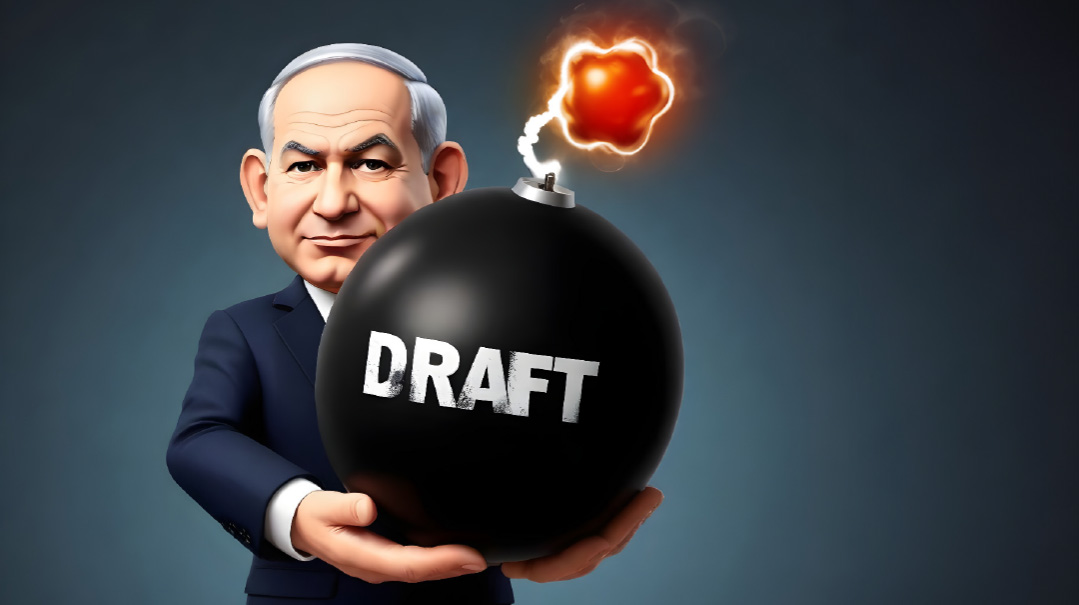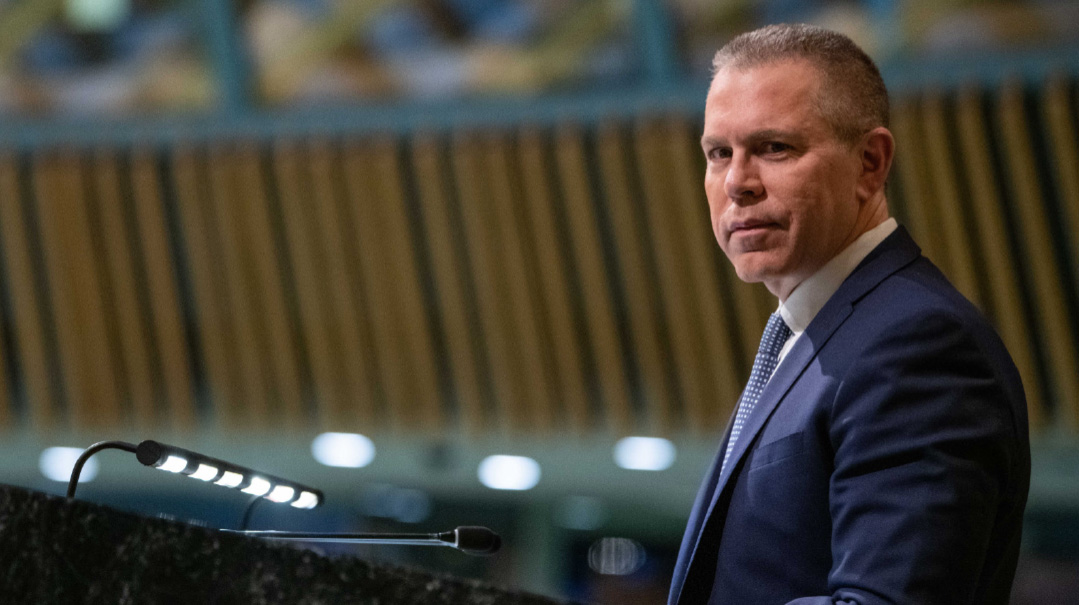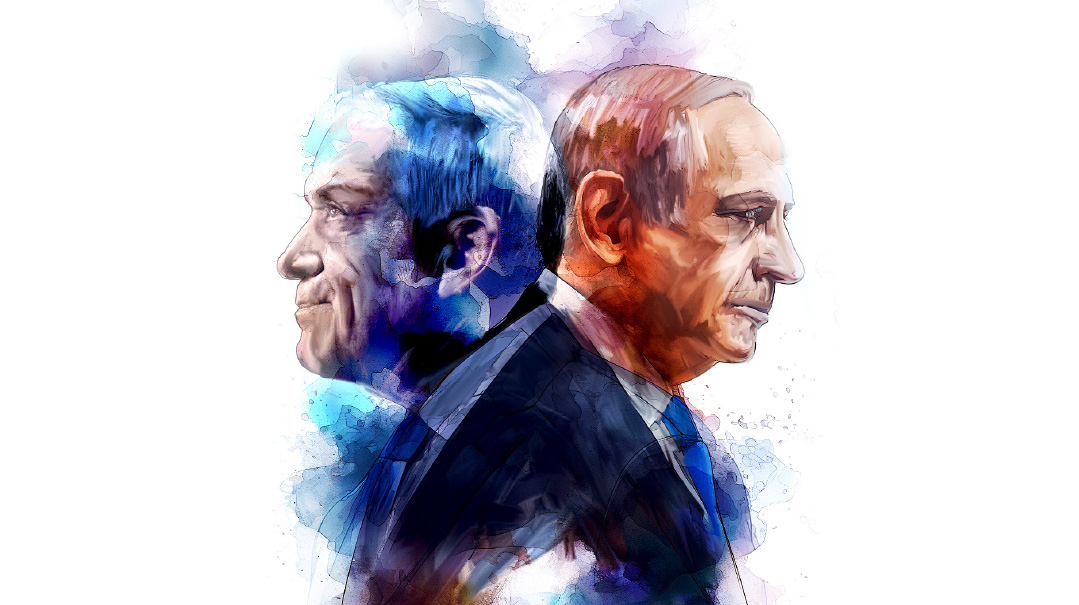Hoping for a Victory Picture

Netanyahu fears he’ll be remembered as the leader who presided over the Jewish People’s worst massacre since the Holocaust

1
Accountability is like quicksand — the harder you resist it, the faster you sink.
More than a week has gone by since the state commission of inquiry on the Meron disaster implicated Binyamin Netanyahu — among others — for the 2021 disaster.
Likud’s petulant response, rejecting the commission’s findings and portraying committee member Shlomo Yanai as a tool of Yair Lapid, proved more convincingly than any of the committee’s witnesses that someone in the prime minister’s office has lost it.
While that statement was released in response to the Meron commission’s conclusions, its real target was the future commission of inquiry that will one day be formed to investigate the State of Israel’s single greatest security failure. Imbued with a relentless sense of history, Netanyahu fears that despite his decades of service as prime minister and statesman, he’ll be remembered as the leader who presided over the Jewish People’s worst massacre since the Holocaust.
Netanyahu’s response to the Meron disaster sheds light on his reaction to October 7 and his obsessive refusal to take responsibility for a catastrophe that occurred on his watch. A member of his office explained to me that Netanyahu genuinely believes he bears no responsibility for either the Meron disaster or October 7. In his perception, the massacre would never have occurred if he’d been brought in on the late-night security consultation between the IDF chief of staff and the head of the Shin Bet on the night of Simchas Torah.
Former High Court justice Theodore Or, who headed the Or Commission to investigate riots in the Arab sector under the Barak government, once explained to me that a commission of inquiry operates along two separate axes. The first is the purely legal one, which sees members of the committee carrying out a rigorous and thorough investigation. But the second axis is time, spurring the committee to complete its task in the shortest possible interval, so its conclusions remain relevant in a country where a day’s news cycle provides enough material for a year in calmer countries.
Netanyahu, who’s shooting down any idea of an investigation during wartime, is counting on the fact that the commission won’t even be established for at least six months, and the process itself could drag on for three years, to judge by the past.
Netanyahu will aim to stay in power until the commission submits its conclusions, or until the court rules on the cases against him — whichever comes later, if it’s up to him.
2
Elections in the near future are the worst-case scenario for Netanyahu, given the polls. The game-changing date Netanyahu has set his eyes on is November 5, 2024. As far as Netanyahu is concerned, a Trump victory would be a “correction election,” to borrow a phrase from the movement recently formed by reservists to call for a change of leadership.
Despite Trump’s burning sense of grievance ever since Bibi called Biden to congratulate him on his election, sources in the Prime Minister’s Office speak of secret communications between the two offices, as a result of which Trump has completely stopped his personal attacks. Bibi, for his part, is digging into his position on not gifting Biden so much as a theoretical recognition of a Palestinian state, a gesture Netanyahu provided former president Obama back in 2009, at a time when Israel needed the United States much less, to say the least.
Even Gantz’s trip to Washington, and the royal reception he received — perceived by the Israeli media as a slap in the face to Netanyahu — only helps Netanyahu sharpen his message as the only leader who can save Israel from a Palestinian state.
Netanyahu believes that if he survives 2024, he’ll be able to recover — as long as he can present a “victory picture” of Yahya Sinwar’s capture or flight from the Gaza Strip over the next six months.
Unlike everyone else in the right-wing bloc, Netanyahu believes that as long as the elections aren’t held this year, he’ll be able to turn things around and lead the right-wing bloc to victory in another election.
“All the polling shows that the public is moving sharply to the right,” Netanyahu told a senior chareidi coalition member, analyzing the political atmosphere. “The Israeli public hasn’t lost trust in right-wing principles, but in the right-wing government. If we’re able to make a stand for Israeli interests even in the face of the administration, alongside military achievements, the right-wing base will come home — and maybe even grow.”
Bibi is counting on a military victory picture, and if Trump can add his own victory picture to the album, all the better. At this stage, Netanyahu isn’t setting his hopes on the right-wing base — even he understands that elections in the near term would be a rout. Instead, he’s looking to right-wing Knesset members as the “base” he has to win over to survive the year.
And when it comes to the right-wing MKs whose votes Bibi needs in order to stay in power, the embrace Gantz received last week in Washington from the Democratic administration only serves Bibi.
Biden’s 40 years of staunch support for Israel made it difficult for Netanyahu to portray him to the Israeli public as the new Obama, especially after Biden’s steadfast support after the outbreak of the war. But more recently, Bibi feels that he’s been dealt a new hand. By openly favoring Netanyahu’s left-wing challenger, an administration that parachutes humanitarian aid into Gaza, talks about constructing a Gaza “aid port,” and pushes for the recognition of a Palestinian state, only strengthens Netanyahu’s hand and solidifies his persona as the only leader who can withstand American pressure.
3
“I don’t know if there’s a solution,” MK Yinon Azoulay of Shas, a proud father of several yeshivah bochurim who uses a kosher phone, told me candidly. “We feel a lot like Am Yisrael on the shores of the Yam Suf. There’s no way out, forward or backward — only Hashem can help.”
Chareidi Knesset members’ task of securing the status of Torah learners hasn’t been this challenging since the early days of the state. But Netanyahu himself predicted this week that the government wouldn’t fall over the draft law — and that means a lot, coming from him.
Over the past decade, the draft issue brought down two of Netanyahu’s governments and prevented the formation of a third, leading to five elections in under four years. During one of those crises, Netanyahu bragged to me that he’s already proven his ability to surprise — but October 7 proved that Netanyahu also isn’t immune from being surprised.
What makes Netanyahu so optimistic? It’s actually the government’s dismal polling numbers, which have made it clear to all concerned that if the right goes to elections against the backdrop of the draft crisis, none of the current coalition heads — aside from Benny Gantz — will be part of the next government, and some may not even make the next Knesset. Paradoxically, one could say that the government’s very weakness is its greatest strength.
(Originally featured in Mishpacha, Issue 1003)
Oops! We could not locate your form.







